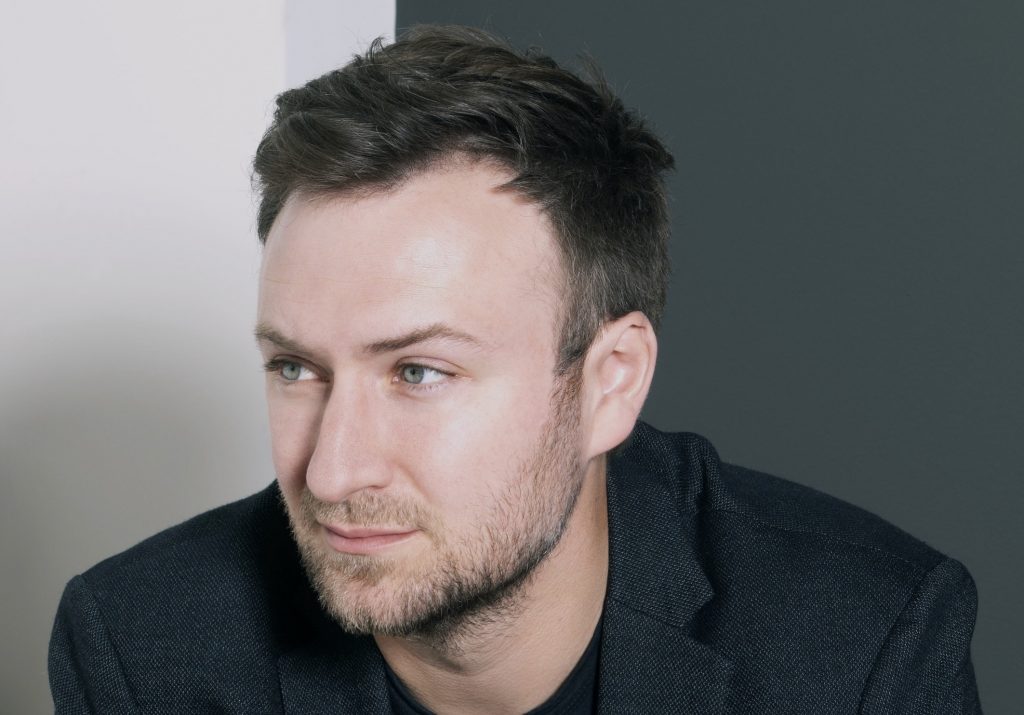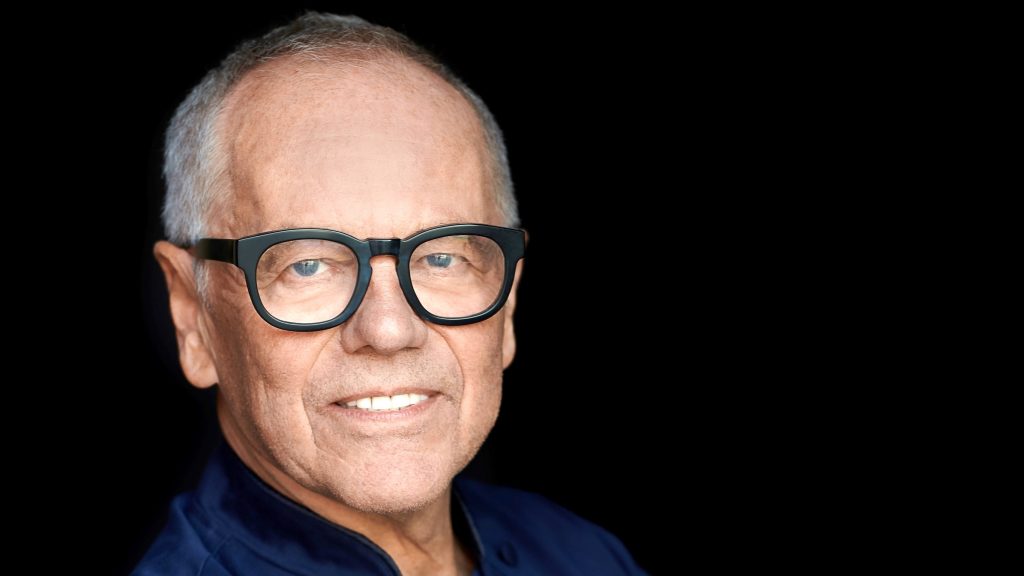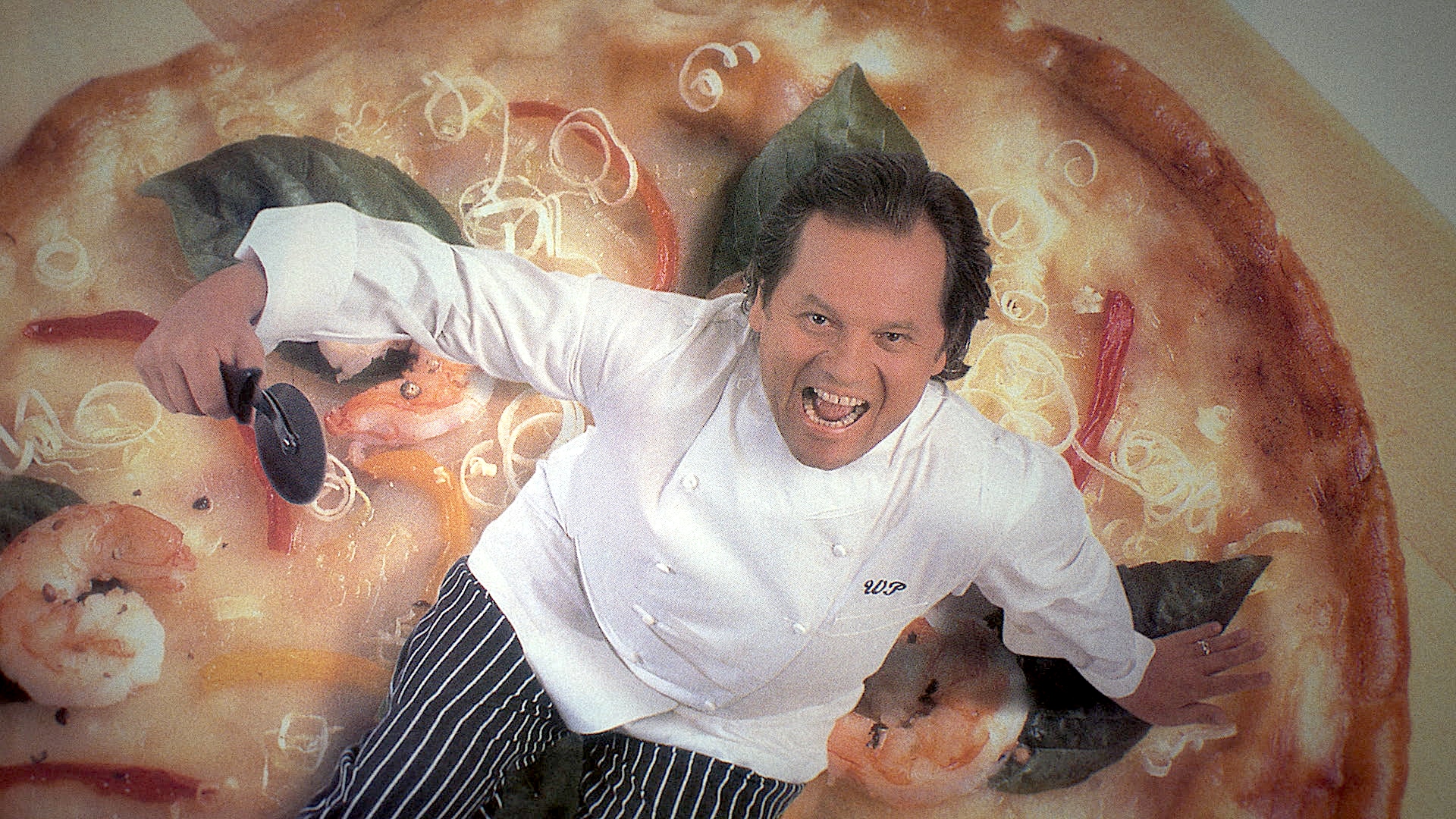Documentaries are having their moment on our screens. Numerous famous people are being dramatized in biopic films or a more through a fly on the wall documentary.
The name Wolfgang Puck is synonymous with fine dining, feeding celebrities at the Oscars, or running restaurants that take months to secure a reservation to. We spoke to director/producer David Gelb (Street Food, Chef’s Table) about his foray into the wonderful world of celebrity chefdom as he discussed his latest mouthwatering documentary, simply titled Wolfgang.
Puck is a reluctant celebrity who didn’t much like talking about his childhood. It took several attempts for Gelb to agree to this documentary.
Wolfgang is not a cooking show. It’s a show about expression, a show about finding your passion, a show about family, a show about love, and most of all… a show about dreams! And big dreams at that.
Why Documentaries?
“Making documentaries was never part of my plan while I was in college,” said Gelb. “Then I started watching them. I loved the work of Errol Morris (Fog Of War) who can tell an emotional story and make it visually interesting too,” continued Gelb. The filmmaker was also inspired by Planet Earth on the BBC which was equally visually stunning.
Despite neither of these being food-related, David Gelb was drawn to the beauty of cinema and augmenting an unscripted story through cinematography and music. He gathered these cinematic tools to eventually create Jiro Dreams Of Sushi culminating to Wolfgang. Food was his canvas.

David Gelb. Photo courtesy of Disney Networks
“Documentaries contain more authenticity than other narratives. It’s there. It’s real. We’re not creating a world. We choose the format and the moments that audiences see, but it is an authentic moment because everything happened,” he added.
Documentaries lack the manipulation of scripted films which use various cinematic techniques to influence the emotional response of the audience
Wolfgang Puck is a household name – a brand. The kitchen is his happy place. People know his face, have seen him on TV, and maybe purchased one of his products. This presented a variety of avenues for Gelb to approach his documentary. It was Puck’s disinclination to talk about his past that ushered Gelb’s entrée into the story; his childhood. “Wolfgang came from a difficult childhood. He would only touch the surface, make a quick joke about it, and move on. We wanted to show a side of Wolfgang that people weren’t familiar with.”
Wolfgang is a real person with vulnerabilities and sensitivities. Success did not come easily for him
“We anchored his story in his origins, but we still tell all the fun ride of the Hollywood stories. It all came from a journey with humble origins.” Puck’s tyrannic stepfather always told him that he would never succeed at anything. The kitchen was his refuge.
The film followed Wolfgang’s transformation as he ran away from his family to prove his stepfather wrong. As he matured, he realized revenge was not the best use of his cooking superpowers. Pursuing his passion for feeding people was. Revenge was a waste of energy. “We showed this emotional evolution and maturity in the film,” said Gelb.
Kitchen and Food
“Food was a measure of generosity and giving to Wolfgang. The kitchen was a place he’d hide from his stepfather.” After all, a man’s place isn’t in the kitchen. “Wolfgang found solace there and experienced feelings of love and acceptance. The sounds and smells of that kitchen with his mother and grandmother stayed with him forever. He expressed the love of both through food.”
Puck shared those feelings, the good parts of his childhood, with his staff, guests, and family. Despite his fantastic success, Wolgang still harbors feelings of self-doubt, failure and anxiety. What if his next venture doesn’t succeed? This drives him to a mindset of “always try to do better. He’s always looking at ways to improve his food, his team, and his restaurants.”

Wolfgang Puck. Photo courtesy of Disney Networks
Wolfgang Puck has come a long way since his humble beginnings in Austria living in a house without electricity or running water. He’s never shed those formative memories. His success is undermined by questions. Is this all a dream? Will my restaurant turn into a pumpkin when I wake up? “Will he return to the basement peeling potatoes again? That’s why if an opportunity comes up, he can’t give it up because who knows if another one will come up later,” said Gelb. “Wolf needs to keep moving.”
The most marked change in Wolfgang Puck’s journey is his relative desire to speak about his past. “He’s focusing on his legacy now. He thinks about leaving a story behind for his children. He wants to inspire all the young chefs around the world because he knows he won’t be here forever. However, he hopes to be cooking until his last breath,” explained Gelb rather poetically.
Food is Wolfgang’s family. “He often refers to his restaurants as his children. His own children would eat at his restaurant to spend time with him because he was rarely home. There was little distinction between his work and family life.” As Wolfgang grew older and wiser, he realized the importance of spending time away from the kitchen to fully immerse himself in his family.
Recipe For Success
Puck was never interested in creating an unusual signature dish to show off his culinary skills that deserved to be immortalized on the cover of a magazine rather than on a plate. He cooked food not create works of edible art. He focused on local farm ingredients and what he had in the kitchen to cook up his delicious masterpieces. His recipes for pizza or pasta only used a few basic ingredients so people could cook them at home. “He didn’t lead with craft but something that was delicious and simple. He’s not deconstructing food or trying to reinvent the wheel. He cooks more with simplicity than style. Technique would never overshadow the ingredients. Just use the best ingredients and don’t mess it up.”
His flagship Los Angeles restaurant Spago was built on California Cuisine. Heavily influenced by his formative years learning cooking in France, he utilized the Mediterranean climate of both France and California to create his menu.
Puck’s restaurants pioneered the “open kitchen” concept so diners could observe the chefs at work (his take on entering the kitchen while mom was cooking and asking what’s for dinner).
Wolfgang Puck learned French cooking from Raymond Thuilier at a restaurant called L’Oustau de Baumanière in Provence, Southeast France. “French food was based on sauces.” Puck still works to this mantra.
Thuilier had a farm so all his ingredients were fresh. “Raymond was also the restaurant owner which is most unusual in the United States in the fine dining world,” expanded Gelb. Typically, the restauranteur was the celebrity not the chef. “The chef was the replaceable blue collar worker.” Wolfgang changed all that.
“L’Oustau has images of Picasso and other luminaries of the day hanging in the kitchen. Puck recreated that aesthetic in his own restaurants.” Wolfgang went to visit L’Oustau many years after his apprenticeship. Thuilier had passed years before, but his spirit remains intact in his restaurant.
“Puck popularized pizza in a fine-dining restaurant. He also experimented with Asian fusion with his Chinese salad,” Gelb continued.
Wolfgang isn’t just a celebrity chef. He’s the father of celebrity chefs. A lot of it comes down to his personality. “He’s funny. He’s warm. He’s a great teacher. He’s amazing on television. He was the first chef to be photographed with Hollywood celebrities. He created the prototype. He makes everyone in his restaurant feel special whether you’re a celebrity or not. He’ll come to your table and ask how your meal tastes.”
Wolfgang Puck has softened in his later years. He’s finally comfortable with his celebrity status. “He loves being around people. He appreciates people and they appreciate him. He enjoys his place in history and food culture.”
He has finally found his place in the world and realized he deserves to find happiness.
